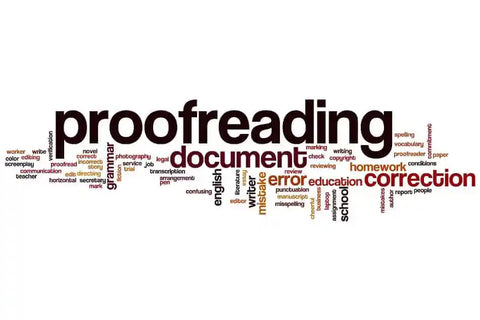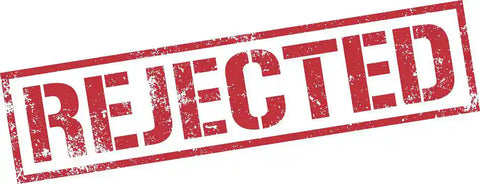Providing the Information Your Proofreader Needs
Engaging the services of a professional academic or scientific proofreader is always an excellent idea, whether you struggle with constructing sentences that are clear and correct, detest fiddling with formatting or would simply like a second pair of sharp eyes familiar with the conventions of scholarly writing to ensure that your writing is polished to perfection before you submit it to a scholarly journal for publication. Professional proofreaders who specialise in working on academic and scientific documents are usually experts in language and in one or more other fields as well, and their experience often gives them a great deal of insight into the wishes and intentions of their clients, but they are not mind readers. A proofreader can certainly detect and make more consistent any patterns an author may establish in the language and formatting of a document, but only if the author’s usage is consistent enough to form detectable patterns. Too much variation and inconsistency in the spelling, formatting and other aspects of your document can leave even the best of proofreaders at a loss to know exactly what you want, and if your document must observe specific guidelines, your proofreader will need to know what they are in order to do the best possible job for you. It is therefore wise to provide a proofreader or editor whose services you engage with as much information as you can when you send them your document, and the following brief list may prove helpful.
• The author instructions or guidelines posted by the journal or periodical in which you hope to publish your writing should always be provided, whether you send a copy of the guidelines along with your document or share the link to the information with your proofreader.
• If the journal provides no or very few guidelines and recommends instead that authors planning to submit their writing consult the articles already published in the journal, your proofreader will need to see those samples. Sharing the links to the articles you consulted while preparing your paper will suffice if the articles are open access, but if not, you will need to provide copies along with your document.
• Scholarly articles written in the English language must follow the conventions of either British or American English. If this preference is indicated in the guidelines you provide, your proofreader will know what to do. If it is not or if you are not providing publisher guidelines, you will need to inform your proofreader which version of the language you are using to ensure that he or she adjusts your text accordingly wherever necessary.
• Punctuation patterns should be as consistent as possible in academic and scientific articles, but the author instructions offered by journals rarely provide advice in this regard, so if you fear that your punctuation may not be consistent enough to give your proofreader the information he or she needs, it is a good idea to specify your preferences. Do you, for instance, wish to use the serial (or Oxford) comma or not? Your proofreader definitely wants to know.
• Most guidelines provided by scholarly journals will indicate the referencing style that should be used and also provide some examples. If published articles are used as samples, they will also demonstrate most of the necessary information. However, if you are not following specific guidelines or samples, you will need to let your proofreader know what documentation style you wish to use. In addition, since many journals do not provide all the information needed to produce complete references for uncommon kinds of sources, any special formatting you have devised for your references will need to be shared with your proofreader so that he or she can retain and emulate it.
Why Our Editing and Proofreading Services?
At Proof-Reading-Service.com we offer the highest quality journal article editing, dissertation proofreading and online proofreading services via our large and extremely dedicated team of academic and scientific professionals. All of our proofreaders are native speakers of English who have earned their own postgraduate degrees, and their areas of specialisation cover such a wide range of disciplines that we are able to help our international clientele with research editing to improve and perfect all kinds of academic manuscripts for successful publication. Many of the carefully trained members of our manuscript editing and proofreading team work predominantly on articles intended for publication in scholarly journals, applying painstaking journal editing standards to ensure that the references and formatting used in each paper are in conformity with the journal’s instructions for authors and to correct any grammar, spelling, punctuation or simple typing errors. In this way, we enable our clients to report their research in the clear and accurate ways required to impress acquisitions proofreaders and achieve publication.
Our scientific proofreading services for the authors of a wide variety of scientific journal papers are especially popular, but we also offer manuscript proofreading services and have the experience and expertise to proofread and edit manuscripts in all scholarly disciplines, as well as beyond them. We have team members who specialise in medical proofreading services, and some of our experts dedicate their time exclusively to dissertation proofreading and manuscript proofreading, offering academics the opportunity to improve their use of formatting and language through the most exacting PhD thesis editing and journal article proofreading practices. Whether you are preparing a conference paper for presentation, polishing a progress report to share with colleagues, or facing the daunting task of editing and perfecting any kind of scholarly document for publication, a qualified member of our professional team can provide invaluable assistance and give you greater confidence in your written work.
If you are in the process of preparing an article for an academic or scientific journal, or planning one for the near future, you may well be interested in a new book, Guide to Journal Publication, which is available on our Tips and Advice on Publishing Research in Journals website.








